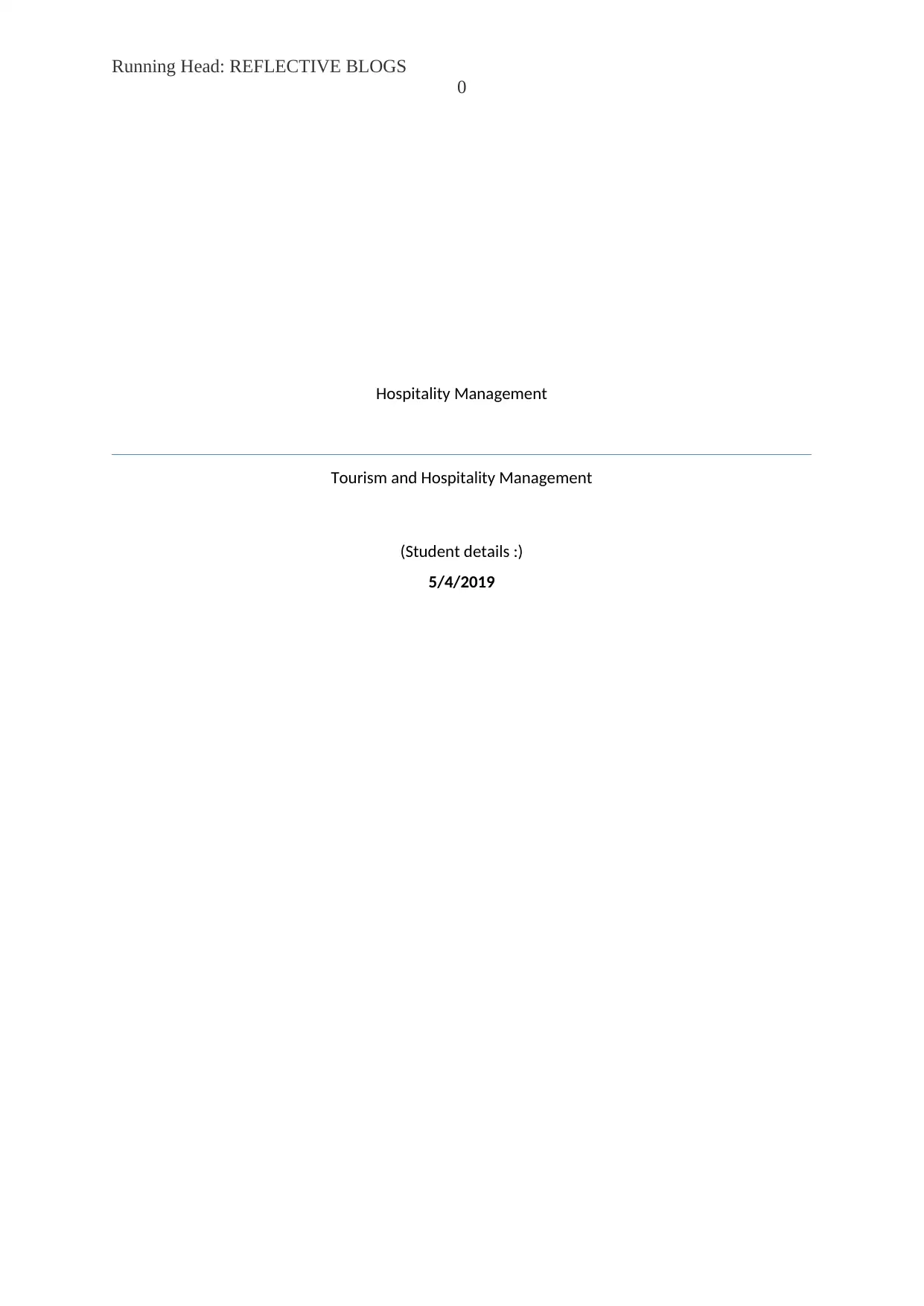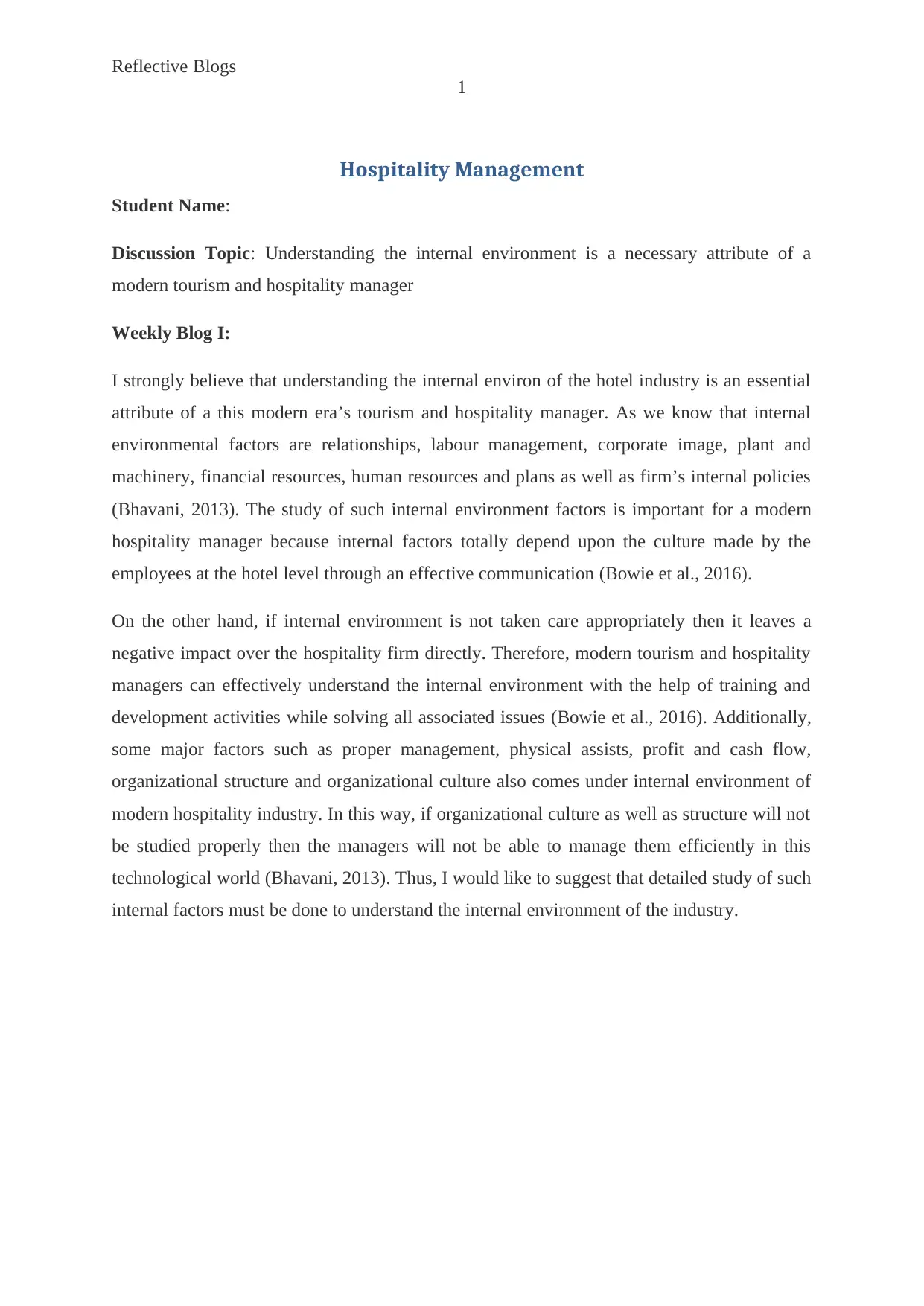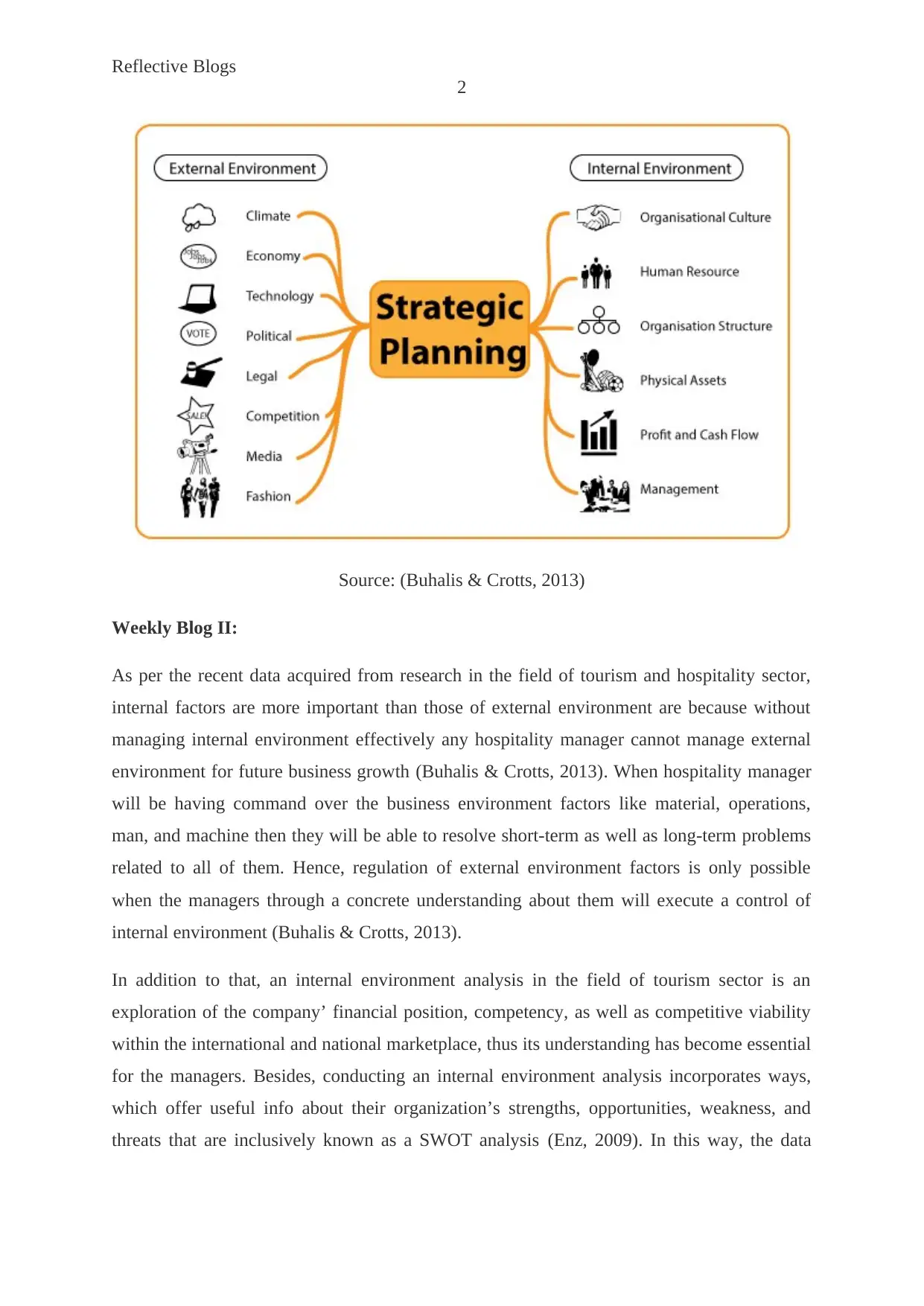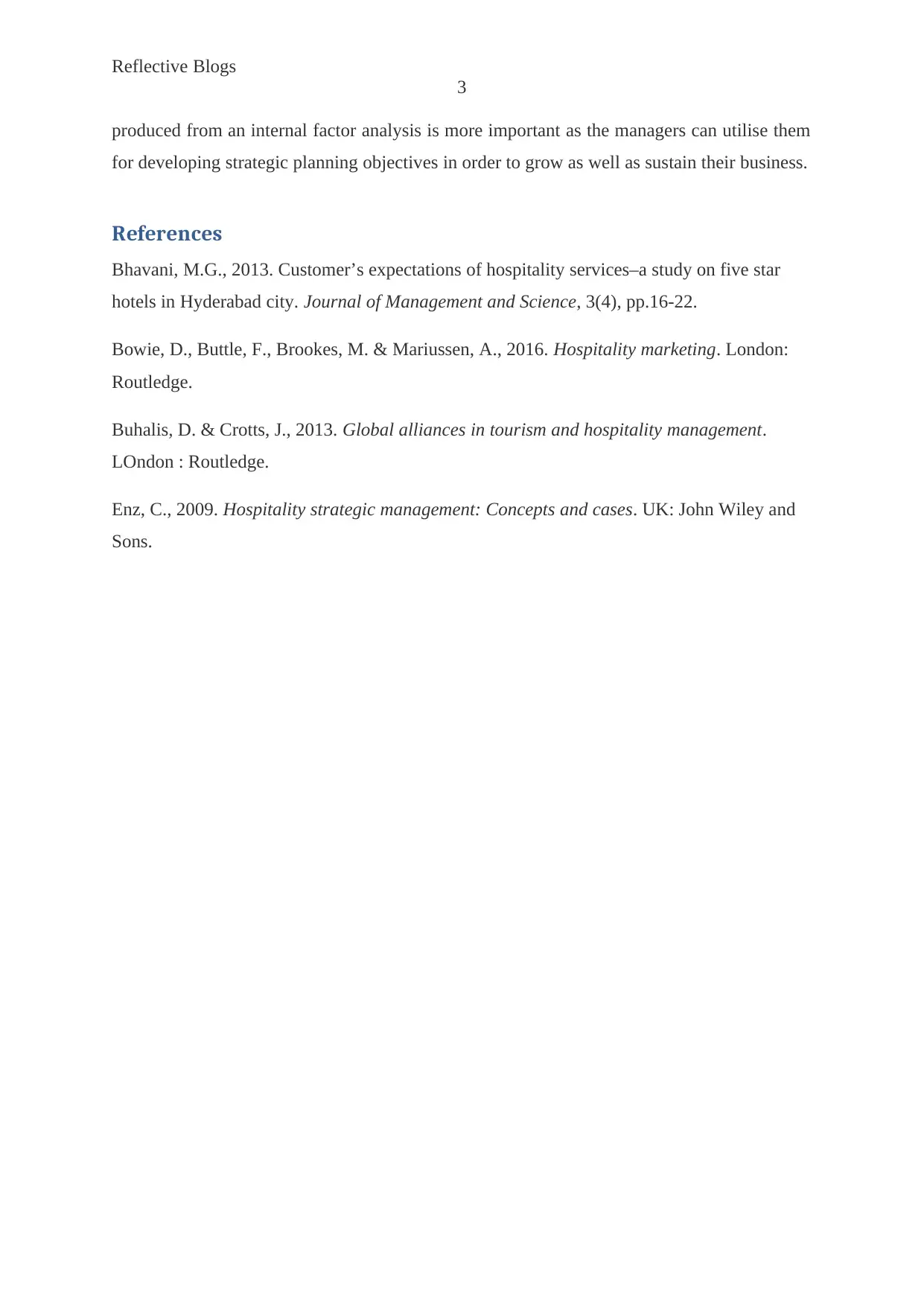Hospitality Management: Reflective Blogs on Internal Environment
VerifiedAdded on 2022/12/30
|4
|692
|87
Homework Assignment
AI Summary
This assignment comprises two reflective blogs focusing on the importance of understanding the internal environment within the hospitality and tourism sector. The blogs emphasize that comprehending internal factors, such as relationships, labor management, financial resources, and organizational culture, is crucial for modern hospitality managers. The analysis highlights how internal factors affect the hotel culture, and effective management requires training, development, and a thorough understanding of the organization's structure and culture. The blogs stress that internal factors are more critical than external ones for business growth, advocating for internal environment analysis, including SWOT analysis, to develop strategic planning objectives. The document also includes references to support the arguments made in the blogs.
1 out of 4











![[object Object]](/_next/static/media/star-bottom.7253800d.svg)